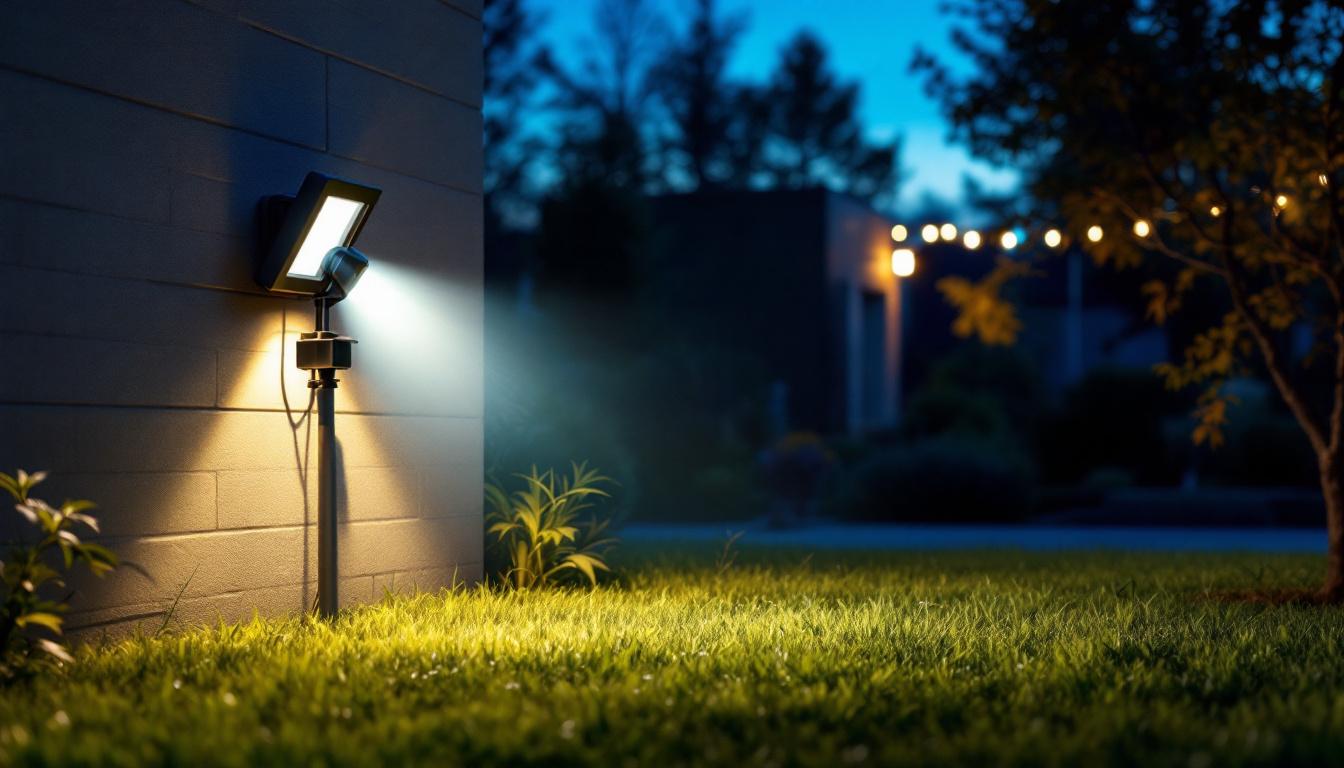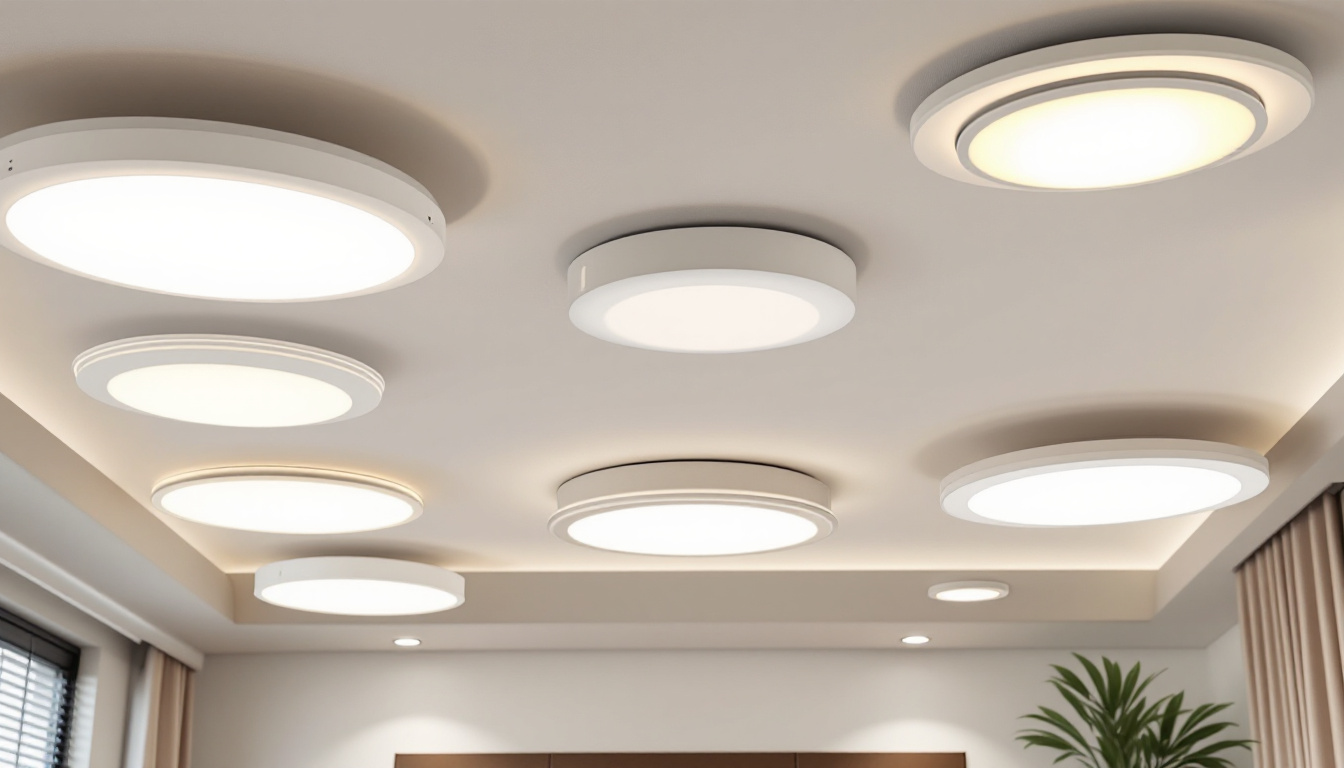In recent years, solar powered yard lights have gained significant popularity among homeowners and contractors alike. These eco-friendly lighting solutions offer a sustainable way to illuminate outdoor spaces while reducing energy costs. For lighting contractors, understanding the intricacies of solar powered yard lights can enhance service offerings and provide clients with efficient, cost-effective solutions. This article delves into the essential aspects of solar powered yard lights, from their benefits and types to installation tips and maintenance.
Solar powered yard lights harness the sun’s energy to provide illumination after dark. They consist of several key components, including solar panels, batteries, LED lights, and sensors. By converting sunlight into electricity, these lights offer a reliable and renewable source of energy for outdoor lighting.
The functionality of solar powered yard lights is relatively straightforward. During the day, solar panels absorb sunlight and convert it into electrical energy. This energy is stored in rechargeable batteries, which power the LED lights when the sun sets. Most models are equipped with light sensors that automatically turn the lights on at dusk and off at dawn, ensuring they operate efficiently without manual intervention.
In addition to the basic functionality, many modern solar powered yard lights come with advanced features such as motion sensors and adjustable brightness settings. Motion sensors enhance security by illuminating pathways or driveways when movement is detected, providing both safety and convenience. Adjustable brightness settings allow users to customize the light output based on their specific needs, whether for a softly lit garden ambiance or brighter illumination for outdoor gatherings.
Solar powered yard lights come with numerous advantages that make them an attractive option for both contractors and homeowners. One of the most significant benefits is the reduction in energy costs. Since these lights rely on solar energy, they can significantly lower electricity bills, making them an economical choice in the long run.
Additionally, solar lights are easy to install, requiring no wiring or electrical connections. This simplicity allows for quick setup in various outdoor areas, from gardens to pathways. Furthermore, they are environmentally friendly, contributing to a reduction in carbon footprint and promoting sustainability. The use of solar energy not only conserves traditional energy resources but also reduces reliance on fossil fuels, aligning with a growing global emphasis on green living and environmental stewardship.
Moreover, solar powered yard lights are available in a wide variety of styles and designs, catering to diverse aesthetic preferences. From sleek modern fixtures to charming vintage lanterns, homeowners can choose options that complement their outdoor decor. This versatility not only enhances the visual appeal of outdoor spaces but also allows for creative lighting solutions that can transform a simple yard into a stunning nighttime landscape. As technology continues to advance, the efficiency and design of solar powered yard lights are expected to improve, further solidifying their place as a staple in eco-friendly outdoor lighting solutions.
When selecting solar powered yard lights, it is essential to consider the various types available. Each type serves different purposes and can enhance outdoor spaces in unique ways.
Pathway lights are designed to illuminate walkways and driveways, providing safety and visibility during nighttime. They typically feature a low profile and are spaced evenly along paths to create a welcoming ambiance. Many models come with adjustable brightness settings, allowing customization based on the surrounding environment.
For areas that require focused lighting, spotlights and flood lights are ideal choices. These lights can illuminate specific features such as trees, statues, or architectural elements. Spotlights generally provide a narrow beam of light, while flood lights offer a broader coverage area. Both types can enhance security by deterring intruders and highlighting potential hazards.
decorative solar lights add aesthetic appeal to outdoor spaces. Available in various designs, shapes, and colors, these lights can serve as focal points in gardens, patios, or decks. From whimsical designs to elegant lanterns, decorative solar lights can enhance the overall atmosphere of a yard while providing functional lighting.
Selecting the right solar powered yard lights involves considering several factors to ensure optimal performance and satisfaction. Understanding these elements can help contractors make informed recommendations to clients.
The brightness of solar lights is measured in lumens. When choosing lights, it is crucial to assess the required brightness for the specific area. For instance, pathway lights typically require lower lumens (around 100-200), while security lights may need higher lumens (500 or more) for effective illumination. Evaluating the intended use will guide the selection process.
The battery capacity of solar powered yard lights directly impacts their performance. A higher capacity battery can store more energy, allowing the lights to run longer during the night. It is essential to consider the average runtime needed for the specific application. Some lights may operate for 6-8 hours, while others can last up to 12 hours or more, depending on the battery size and solar panel efficiency.
Outdoor lighting fixtures must withstand various weather conditions. When selecting solar powered yard lights, it is vital to choose models that are weather-resistant and durable. Look for lights with an IP65 or higher rating, indicating they are protected against dust and water. Additionally, materials such as stainless steel or high-quality plastics can enhance longevity and performance.
Proper installation is crucial for maximizing the effectiveness of solar powered yard lights. Following best practices can ensure optimal performance and longevity.
One of the most critical factors in installing solar powered yard lights is selecting the right location. Lights should be placed in areas that receive direct sunlight for a significant portion of the day. Avoid shaded spots caused by trees, buildings, or other obstructions, as these can hinder the solar panels’ ability to charge effectively.
When installing multiple lights, spacing and arrangement play a vital role in achieving even illumination. For pathway lights, a spacing of 6 to 8 feet apart is generally recommended. For decorative lights, consider the overall design and layout of the outdoor space to create a harmonious look. Experimenting with different arrangements can help determine the most visually appealing setup.
Maintaining solar powered yard lights is essential for ensuring their longevity and performance. Regularly check the solar panels for dirt or debris, as these can obstruct sunlight and reduce charging efficiency. Cleaning the panels with a soft cloth can help maintain optimal performance. Additionally, inspect the batteries periodically and replace them as needed to ensure consistent operation.
If solar lights are not providing adequate brightness, several factors may be at play. First, check if the solar panels are receiving enough sunlight. If they are shaded or dirty, cleaning them may resolve the issue. Additionally, consider the battery’s condition; a failing battery may not store enough energy for optimal performance.
Short runtime is another common issue with solar powered yard lights. This problem can stem from inadequate sunlight exposure during the day or a worn-out battery. Ensure the lights are installed in sunny locations and consider replacing batteries that no longer hold a charge effectively.
Occasionally, solar lights may malfunction or fail to turn on. This can be due to faulty wiring, a defective sensor, or damaged components. Conducting a thorough inspection can help identify the issue. If necessary, consult the manufacturer’s guidelines for troubleshooting tips or consider replacing the unit if it is beyond repair.
The solar lighting industry is continually evolving, with new technologies and trends emerging to enhance performance and user experience. Staying informed about these developments can help contractors offer cutting-edge solutions to clients.
Smart solar lights are gaining traction, integrating advanced technology to provide enhanced functionality. These lights can be controlled via smartphone apps, allowing users to adjust brightness levels, set schedules, or even change colors. The integration of smart technology not only improves convenience but also enhances energy efficiency.
Advancements in battery technology are leading to longer-lasting and more efficient batteries for solar powered yard lights. New lithium-ion batteries are becoming more prevalent, offering higher energy densities and longer lifespans compared to traditional nickel-cadmium batteries. This development can significantly enhance the performance of solar lights, providing extended runtimes and reduced maintenance needs.
Ongoing research and development in solar panel technology are resulting in more efficient solar cells. Higher efficiency panels can capture more sunlight, leading to improved energy conversion rates. This advancement means that solar powered yard lights can perform better in less-than-ideal weather conditions, making them a more reliable choice for outdoor lighting.
Solar powered yard lights offer a multitude of benefits, making them an excellent choice for outdoor illumination. By understanding their functionality, types, and installation considerations, lighting contractors can provide valuable recommendations to clients seeking sustainable lighting solutions. As technology continues to evolve, staying informed about trends and advancements will ensure that contractors remain competitive in the market. Embracing solar powered yard lights not only enhances outdoor spaces but also contributes to a greener, more sustainable future.
Ready to elevate your lighting game with solar powered yard lights? At LumenWholesale, we provide lighting contractors with the highest quality, spec-grade lighting products at unbeatable wholesale prices. Say goodbye to local distributor markups and hello to superior lighting solutions that meet the highest industry standards. With our extensive selection, you can ensure every outdoor project shines with reliability and high performance. Plus, enjoy the convenience of bulk buying with free shipping, ensuring you get the premium lighting you need at the best value — without any hidden fees. Make your next project a beacon of sustainability and style with LumenWholesale. Wholesale Lighting at the Best Value.

Discover the top motion sensor flood lights that will revolutionize your outdoor lighting projects.

Explore the top challenges lighting contractors face when installing solar LED outdoor string lights.

Explore the pros and cons of false ceiling light covers versus alternative options in this insightful guide tailored for lighting contractors.

Discover the pitfalls lighting contractors often encounter with LED plant lamps.